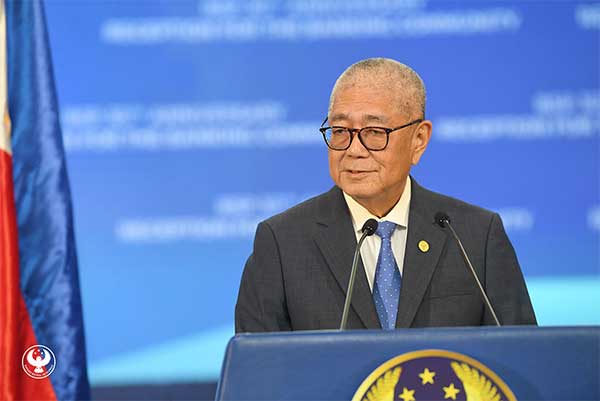
By Francis Allan L. Angelo
Moody’s Investors Service affirmed the Philippines’ investment-grade credit rating of “Baa2” with a stable outlook, highlighting the country’s economic reforms, fiscal consolidation efforts, and robust macroeconomic fundamentals as key factors.
The global credit rating agency emphasized the significance of reforms passed in recent years, which are expected to enhance the country’s medium-term growth potential.
According to Moody’s, these reforms will foster a business-friendly environment and attract more foreign investments.
“The passage of reforms over the past several years to liberalize the Philippine economy will support medium-term growth potential by supporting a business-friendly environment and attracting foreign investments,” Moody’s stated.
The announcement comes on the heels of the Philippine Statistics Authority reporting a 6.3% year-on-year growth in gross domestic product (GDP) for the second quarter of 2024.
Additionally, foreign direct investment (FDI) net inflows from January to May 2024 increased by 15.8% to USD 4.0 billion, up from USD 3.5 billion during the same period in 2023.
Moody’s forecasts that FDI inflows will continue their upward trajectory in 2024 and 2025, driven by strong investor interest in sectors such as energy, manufacturing, and information and communications.
The agency also pointed to the Marcos administration’s “Build Better More” initiative, which targets infrastructure investments at 5% of GDP annually, as a key driver in reducing the country’s infrastructure gap.
Bangko Sentral ng Pilipinas (BSP) Governor Eli M. Remolona, Jr. welcomed the affirmation of the country’s investment-grade rating.
“The BSP welcomes Moody’s affirmation of the country’s investment-grade rating, even as we work with the government to improve the country’s ratings. We are taking a measured approach in safeguarding price stability conducive to sustainable economic growth,” Remolona said.
Moody’s stable outlook reflects a balanced assessment of risks. The agency noted that upward pressure on the credit rating could stem from improved fiscal metrics, strong growth, and increased public and private investments.
Conversely, external challenges that could dampen consumption and investment or ineffective reforms may pose downward risks.
An investment-grade rating is crucial for the Philippines as it indicates low sovereign risk, which allows the country to secure cheaper funding. This, in turn, enables the government to allocate more funds toward social programs and development projects, rather than debt servicing.





















